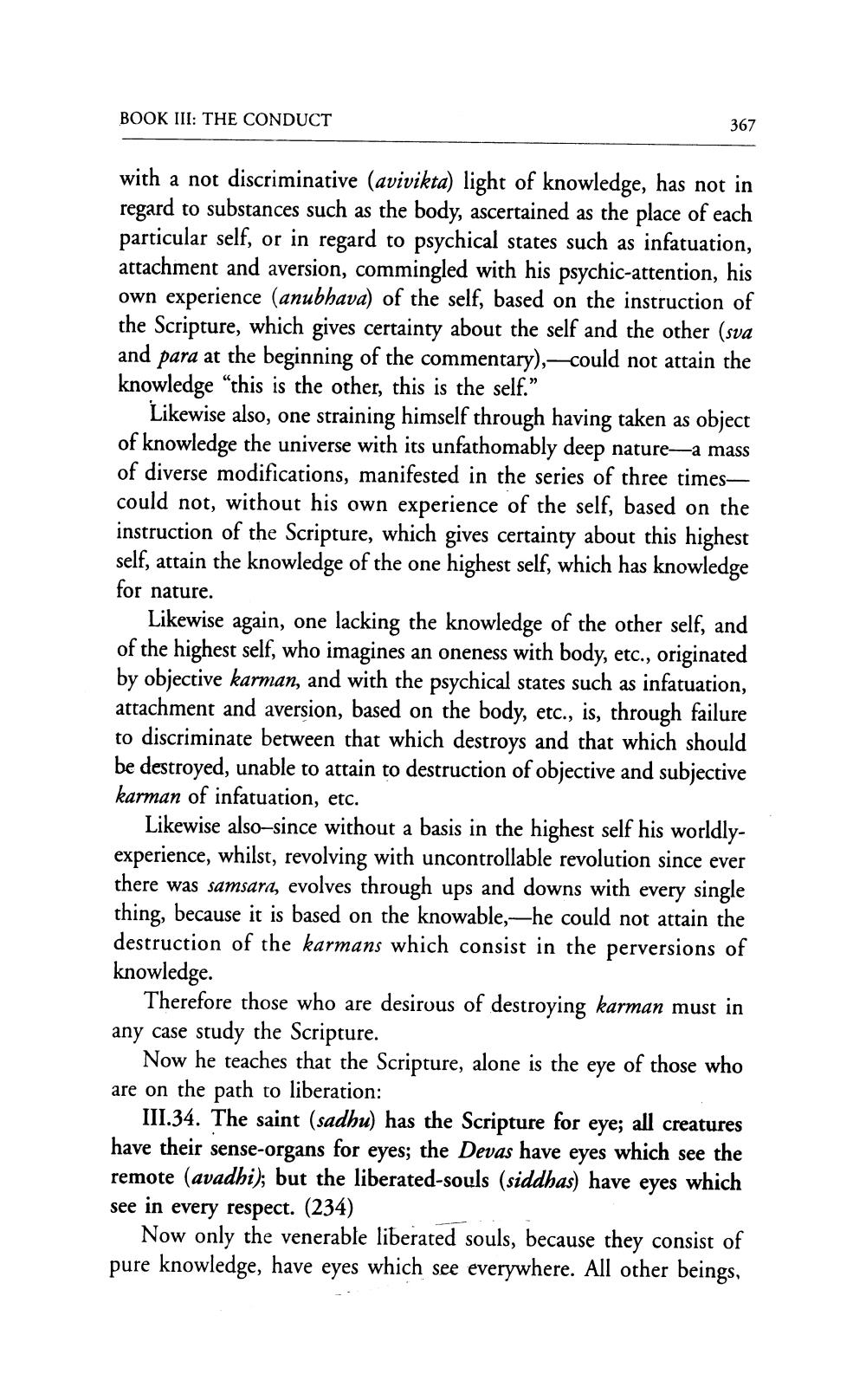________________
BOOK III: THE CONDUCT
367
with a not discriminative (avivikta) light of knowledge, has not in regard to substances such as the body, ascertained as the place of each particular self, or in regard to psychical states such as infatuation, attachment and aversion, commingled with his psychic-attention, his own experience (anubhava) of the self, based on the instruction of the Scripture, which gives certainty about the self and the other (sva and para at the beginning of the commentary),-could not attain the knowledge “this is the other, this is the self."
Likewise also, one straining himself through having taken as object of knowledge the universe with its unfathomably deep nature—a mass of diverse modifications, manifested in the series of three timescould not, without his own experience of the self, based on the instruction of the Scripture, which gives certainty about this highest self, attain the knowledge of the one highest self, which has knowledge for nature.
Likewise again, one lacking the knowledge of the other self, and of the highest self, who imagines an oneness with body, etc., originated by objective karman, and with the psychical states such as infatuation, attachment and aversion, based on the body, etc., is, through failure to discriminate between that which destroys and that which should be destroyed, unable to attain to destruction of objective and subjective karman of infatuation, etc.
Likewise also-since without a basis in the highest self his worldlyexperience, whilst, revolving with uncontrollable revolution since ever there was samsara, evolves through ups and downs with every single thing, because it is based on the knowable,-he could not attain the destruction of the karmans which consist in the perversions of knowledge.
Therefore those who are desirous of destroying karman must in any case study the Scripture.
Now he teaches that the Scripture, alone is the eye of those who are on the path to liberation:
III.34. The saint (sadhu) has the Scripture for eye; all creatures have their sense-organs for eyes; the Devas have eyes which see the remote (avadhi); but the liberated-souls (siddhas) have eyes which see in every respect. (234)
Now only the venerable liberated souls, because they consist of pure knowledge, have eyes which see everywhere. All other beings,




